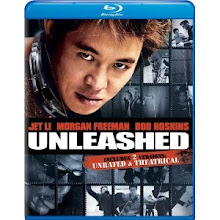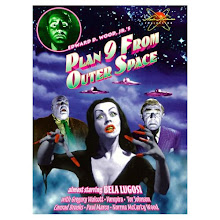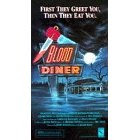by Jason Pyles
In his review of “The Son,” esteemed film scholar and critic Stanley Kauffmann, of The New Republic, said “... both times (I saw ‘The Son’), I felt that I was in the presence of a work that is larger and more deeply roiling than we are usually prepared for in a film.” In another review, he described this film as “... magnificently simple and large ...”
Roger Ebert raved about “The Son,” calling it “a great film.” In fact, in his review he wrote: “... go see the film. Walk out of the house today, tonight, and see it, if you are open to simplicity, depth, maturity, silence, in a film that sounds in the echo chambers of the heart. ... If you find you cannot respond to it, that is the degree to which you have room to grow. ... I grew during this film. It taught me things about the cinema I did not know.”
The New York Times’ A.O. Scott said “The Son” has “devastating power.” He also wrote, “To call ‘The Son’ a masterpiece would be to insult its modesty. Like the homely useful boxes Olivier teaches his prodigals to build, it is sturdy, durable and, in its downcast, unobtrusive way, miraculous.”
The three critics quoted above are all greater than I. Also, I will be the first to confess that I have much to learn about the cinema, or as Ebert puts it, I have “room to grow.” Having said that, I think “The Son” is mostly irritating, slow and therefore boring, and a bit lean in its story. No, not all cinema should be entertaining or formulaic (“The Son” is neither), but its simplicity approaches a dullness comparable to my workplace's safety training videos.
Specifically, what drove me nuts is the way the camera piggy-backs over Olivier’s shoulder through most of the film. I’m fine with wobbly, hand-held camerawork, but it was the perpetual close-ups and medium shots that literally made me keep scooting back from the screen, so I could get some distance between the actor and me, in hopes of gaining some perspective.
I watched the entire film closely (I had no choice!) to see why the directors Dardenne chose to photograph their principal actor in this claustrophobic way. After all, films tell their stories with more than just the script: editing, cinematography, sound — and basically every other element usually contributes to making the narrative materialize before us, so I suspected they had a reason for this pervasively noticeable stylistic choice. The best I could come up with was the close camera (which witnesses Olivier’s troubled nature), symbolizes how his burdensome knowledge was a “monkey on his back.” After the scuffle in the woods when the unlikely pair load the wood together in the final scene, the camera finally backs off a little, as if to suggest that Olivier is now free from the information he was harboring.
The film is painfully slow. Some films’ slow pacing assists in conveying their narratives, as I mentioned above. “Cast Away” is a great example of this: It is slow — of necessity — to help give us a sense of Tom Hanks’ long passage of time on the deserted island. But “The Son” is not only needlessly slow, it doesn’t seem to care if we’re watching or not. Case in point: At one point we see Olivier begin to put on his back-support belt, but before we get the thrilling opportunity to watch him put it on, Olivier is partially out of the frame, off screen, so we just have to wait for him, without getting to at least see the belt sequence, which is better than watching nothing.
I admire the naturalistic performances. The cast members seem more like regular people in a documentary than actors in a screenplay. Also, I like how the Dardenne brothers wrote their story with credible developments and outcomes, rather than resorting to ramped-up drama like the material we’d expect to see in an artificial (albeit entertaining) Hollywood flick.
Yes, there is finally some degree of power within “The Son,” but it’s like cracking the shells of pistachios to get the nut — or sucking on rib bones to get a little meat: There’s eventually a good morsel, but it’s not really worth all the work to get to it. Put another way, “The Son” would have worked much better as a short film.






























































No comments:
Post a Comment